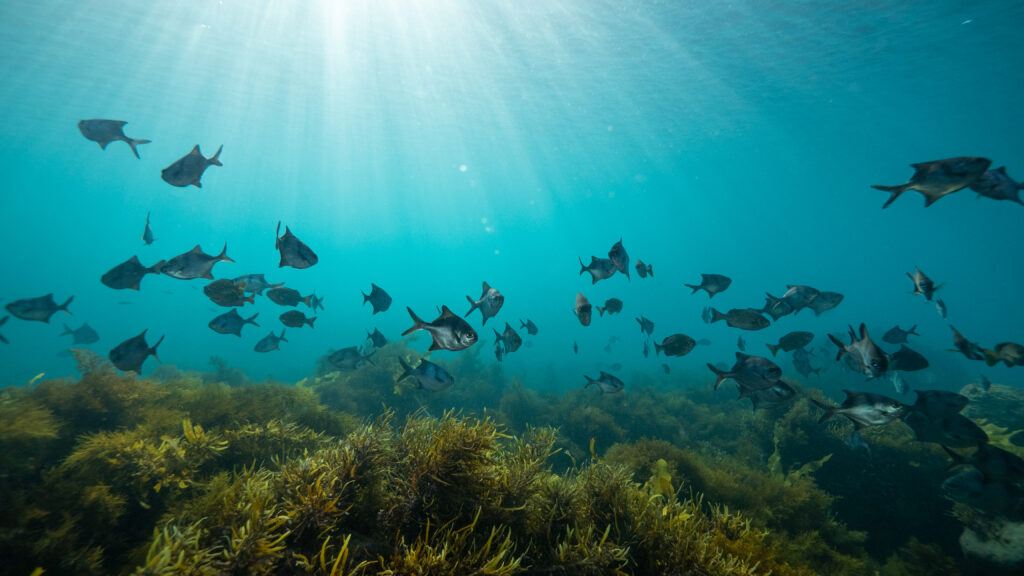A new EU-funded project will provide a step change in how we observe the ocean to improve biodiversity and climate assessments.

We are making continuous advancements in the way we observe and model our ocean to better understand and assess the state of the ocean, its biodiversity, role in climate regulation and other vital services it provides for us. This is a major achievement, yet biological and ecosystem observations are often uncoordinated, the data is inaccessible, and the data collected is not designed to be comparable, in other words there is room for improvement in how we collaborate around ocean observations.
In a bid to transform the landscape of biological and ecosystem (BioEco) ocean observations in Europe and beyond, the EU has funded a new project, BioEcoOcean, with 5.7 million EUR under the Horizon Europe Programme. The project will work in living labs with stakeholders to co-create effective solutions to address gaps in the current BioEco global observing system and foster a more coordinated and recognized role in climate and biodiversity decision-making, while leveraging existing data and infrastructure.
BioEcoOcean, which involves nine partner institutions from seven EU countries, just held its online kick-off event on 5-7 March 2024, to officially embark on this exciting and innovative project. With a focus on fostering collaboration, advancing technology, and adhering to FAIR (findable, accessible, interoperable, reusable) data principles, BioEcoOcean aims to bring about a systemic change in the way we understand and monitor the ocean. A key outcome of the project will be a Blueprint for Integrated Ocean Science.
The project will operate in close collaboration with global organizations such as the Global Ocean Observing System (GOOS), IOC-UNESCO’s Ocean Biodiversity Information System, and the Marine Biodiversity Observing Network (MBON), ensuring its global relevance and long-term legacy of its outcomes.
“GOOS anticipates that the innovative BioEcoOcean Project will contribute to GOOS by strengthening the systematic observation of key biological and ecosystem Essential Ocean Variables (EOVs) and through connecting EOVs to users through assessments, indicators and data availability,” says Emma Heslop, GOOS Programme Specialist. “This work will leverage the GOOS EOV framework and, at the same time, contribute to advancing and improving the framework and observing stystem to be more fit for purpose. The close connection from observations, through the OBIS data management system, to the users exemplifies a connected and integrated global BioEco ocean observing value chain,” she adds.
“We need to improve collaboration to gain a better understanding of the ocean,” says Dr. Lina Mtwana Nordlund, who is coordinating the project from Uppsala University. “BioEcoOcean will develop a tool to facilitate and encourage collaboration among planners, researchers, managers, data analysts and policymakers, along with other stakeholders involved in ocean observations. The tool or guiding document is called Blueprint for Integrated Ocean Science and has a specific focus on marine life. It aims to support the whole ocean observing community to think bigger and across sectors,” she adds. Ultimately, the Blueprint is set to guide operational workflows, strengthen technological readiness and encourage holistic thinking in ocean observations building on the existing essential variable (EV) frameworks for the ocean, climate and biodiversity.

A key objective of the project is to strengthen the development of common approaches, standards, and protocols according to the requirements provided through the Essential Variable frameworks. Increasing the level of coordination of observations and data management will result in more operational and interconnected workflows among the BioEco monitoring and research communities, ultimately enhancing our capacity for evidence-based decision making on sustainable use of our ocean. Thus, the outcomes of BioEcoOcean will also support the implementation of the EU’s Mission Ocean and Waters, the delivery of the European Green Deal, and the recently approved EU Nature Restoration Law.
BioEcoOcean runs from February 1, 2024 to January 31, 2028, and is a collaboration between the following partners: Uppsala University (UU; Sweden; Lead), Danmarks Tekniske Universitet (DTU; Denmark), EUROGOOS (Belgium), Università di Pisa (UNIPI; Italy), United Nations Educational Scientific And Cultural Organization (UNESCO; France), Centro Interdisciplinar de Investigação Marinha e Ambiental (CIIMAR, Portugal), Instytut Oceanologii Polskiej Akademii Nauk (IO PAN; Poland), Mercator Ocean international (MOi; France) and the Atlantic International Research Centre (AIR Centre; Portugal).
The project BioEcoOcean: Co-Creating Transformative Pathways to Biological and Ecosystem Ocean Observations received funding under Grant Agreement No: 101136748. Its sister project, Ocean observations and indicators for climate and assessments (ObsSea4Clim) was also funded under the same call topic HORIZON-CL6-2023-CLIMATE-01-8.
Follow BioEcoOcean: Facebook, LinkedIn and Twitter
Contact: bioecoocean@uu.se

Funded by the European Union. Views and opinions expressed are however those of the author(s) only and do not necessarily reflect those of the European Union or European Research Executive Agency (REA). Neither the European Union nor the granting authority can be held responsible for them.
